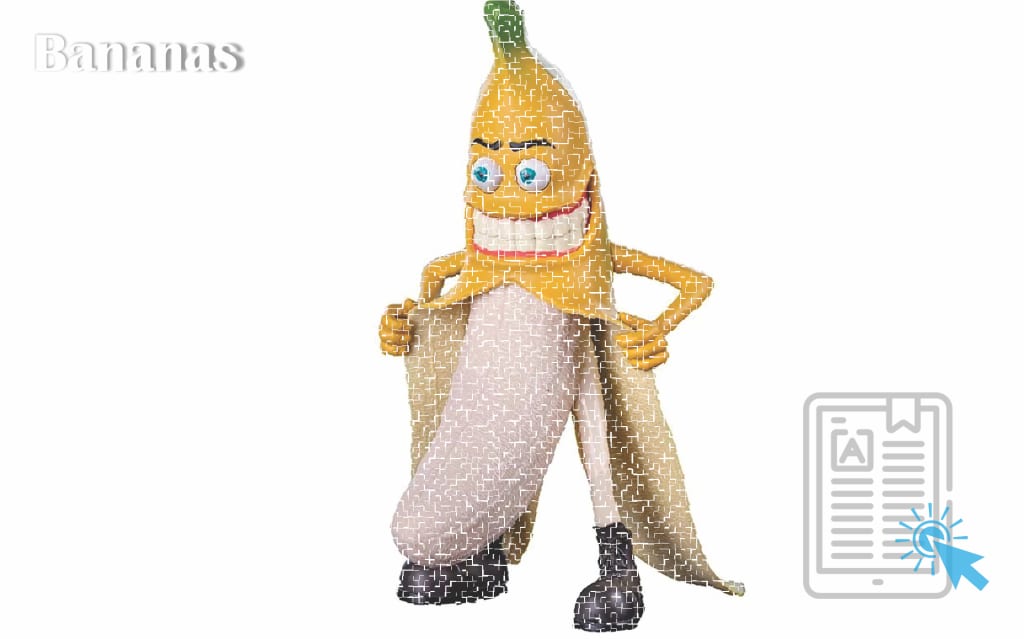Peeling Back the Curtain:
The Astonishing Truths Hidden Behind Bananas

First the good: bananas are healthy, full of nutrients and energy, fits in your hand, gives a small hint when fully ripe, and is easy to peel and eat.
According to this shocking statistic, bananas are Walmart's best-selling product.
Not potato chips, not Coca-Cola, no, not Fifty Shades of Gray, but bananas.
They seem so perfect for human consumption that Kirk Cameron tried to use them to prove the existence of God.
Of course, this banana was not created by God or nature.
Bananas, at least the ones you see in stores, were created by humans.
Don't get me wrong.
There are 4,444 types of wild banana plants, native to South and Southeast Asia, and there are dozens and thousands of species.
They are not what we eat.
As you can imagine, some of these species have 4,444 seeds.
This is precisely because it is a fruit, a fleshy body containing seeds.
You may be wondering why you've never eaten banana seeds before.
All these years of you eating bananas, where do you think their seeds come from?.
Somehow, they continue to spread and multiply miraculously and are always available at your local supermarket or fruit shop.
Cultivated banana seeds are almost no longer available.
If you look closely, you can see small black dots.
There are only pieces left, but they are not fertile seeds.
Even if you plant it, nothing will grow.
Today's bananas are sterile mutants.
I don't mean to be mean, it's just the truth.
Unless you lived in his 1960s (hats off to you old folks who watched William Tales and Thunder in paradise), every banana you've ever eaten is nearly genetically identical.
This is the Cavendish banana, the virtually seedless variety we all eat today, but it wasn't always our favorite banana.
Until the 1960s, everyone ate the same banana, but it was just another banana.
Gros Michel is a large, sweet fruit with thick skin.
You may notice that banana-flavored things don't actually taste like bananas.
Hmm, it tastes like Gros Michel.
The genetic monotony of the Gros Michel variety was responsible for its downfall.
A fungicide-resistant pathogen called Panama disease has begun infecting Gros Michel crops.
The Gros Michel variety became nearly extinct when farmers realized how endangered their plants were.
The entire banana industry had to be converted to serve Cavendish.
Since it is seedless, the only way to propagate it is to transplant part of the plant's stem, but for the past 50 years we have often used Cavendish, which is more resistant to Panama disease.
But shockingly, a strain of Panama disease has been identified that affects the Cavendish strain we all eat.
A worldwide monoculture of genetically identical individuals is a beautiful sight for pathogens.
The fungus must find a way to infect and destroy a single individual, and suddenly there is no diversity left to stop it or slow its progress.
This has led many scientists to worry and even predict Cavendish's complete demise.
This wonderful, most popular of all fruits, may cease to exist entirely.
The good news is that we now have a better understanding of genetics, infectious diseases, fungi, and pathology.
Scientists and breeders have already taken 4,444 steps to protect Cavendish.
Some breeders are producing genetically different bananas that can replace Cavendish crops if they fail, while scientists are genetically engineering Cavendish plants to make them immune to Panama disease.
Science is really trying.
We also learned a lot from the Gros Michel tragedy.
Infected fields are quickly destroyed and new crops grown from pathogen-free laboratory-grown plant stock.
Thanks for taking time from your busy schedule to educate yourself on this subject, have a great one.
About the Creator
Kwandokuhle Ndethi
Born to express, not to impress.






Comments
There are no comments for this story
Be the first to respond and start the conversation.